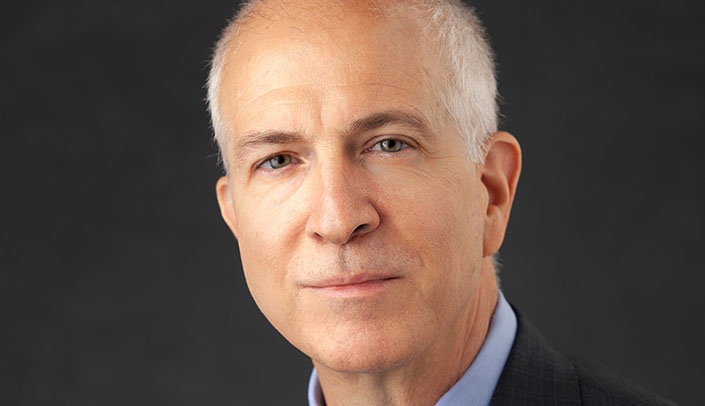In this article, Mark Rupp, MD, chief of the UNMC Division of Infectious Diseases, shares guidelines on how to handle the holidays.
“This year, having gatherings with extended family from different regions is too risky,” Dr. Rupp said. “If we don’t pay attention to the current situation, we’re going to have even more transmission and more people dying than would otherwise.”
In the past week, we’ve seen a record number of COVID-19 patients in Nebraska hospitals. This year, you can meet virtually to protect people at higher risk.
“People can still have a meaningful holiday,” Dr. Rupp said. “In my family, we go around, and each person says what they’re thankful for. It’ll be virtual this year, but you can still get a lot of the meaningful aspects of your family gathering over Zoom or Skype. Next year at this time, we’re going to be together.”
If you get together with people you don’t live with this year, despite the risks, consider these three things.
1. Who are you putting at risk?
Older adults and people with preexisting conditions are at higher risk for severe COVID-19 illness.
“Think about the priority of keeping them safe versus getting together for this one year,” Dr. Rupp said. “If they do come, make it a brief visit with no hugging or close contact. Perhaps, a brief interaction to see and greet one another rather than a prolonged shared meal around the table.”
2. What precautions are you taking before you meet?
Because of the extremely high community spread rate, all attendees should self-quarantine before they get together. That means everyone avoids seeing anyone outside their household for two weeks before you get together. Some people have in-person work or school. In those cases, limiting optional encounters will help.
If you’re the host, communicate ground rules before people get there. Email everyone about bringing masks, how long the gathering will last and steps you’re taking to prevent spread.
Monitor yourself for symptoms. If you have a fever or cough in the two weeks before your visit, stay home and do not attend the gathering.
Avoid traveling to other areas. If you must travel, driving is safer than flying because airports involve waiting in enclosed spaces with others who aren’t from your household.
3. How are you limiting risk at the gathering?
Many of our patients have told us and contact tracing is showing they are contracting COVID-19 at indoor gatherings with family and friends where masks aren’t being worn. Masks have worked for years in clinical settings to control the spread of infectious diseases.
In addition to wearing masks, you should also take other precautions. “Masks are just one layer of protection on top of physical distancing, hand hygiene and improved ventilation,” Dr. Rupp said.
Here are ways to reduce risk at the gathering:
- Wear masks, especially indoors;
- Keep it small and invite 10 people or fewer;
- Meet outside if you can. If it’s too cold to meet outside, open windows to increase the ventilation;
- Have hand sanitizer available and use good hand hygiene;
- Reduce exposure time to less than an hour instead of multiple hours;
- Have one person handle all the food; and
- Keep six feet apart as the bare minimum of distance. In crowded areas with poor ventilation, the virus can still infect people who are 6 feet apart.
“Sitting around the table, eating and drinking and talking and laughing, guarantees that the virus will spread if one of the participants has COVID-19,” Dr. Rupp said. “You may feel perfectly healthy and still be shedding the virus. You won’t necessarily know.”
The choices you make for your holiday celebration have real consequences for the rest of our community. We know people have COVID-19 fatigue. So do we. Continuing to limit how we see family and friends is difficult, but the alternative is so much worse. Vaccine-less herd immunity, or giving up all infection control attempts, would mean millions of cases and deaths from a preventable disease. Please consider the impact of your actions on our health care workers and our community.
“The folks who are truly deserving of recognition are the nurses, doctors and staff in our COVID-19 units, emergency departments and intensive care units who continue to heroically care for these patients,” Dr. Rupp said. “They will continue to do so as long as it is humanly possible, but they are not inexhaustible.”

Pilamaya, Dr. Rupp for all you and all of our health care professionals are doing daily to keep us safe, to tend to us when we are sick, and to save our lives.
This practical information is really important. If you have anything similar for health professions students who are living in apartments or dorms, I know that is another area where practical information would be helpful…especially on our campuses beyond Omaha.
What a fantastic article. Such great info and thank you so much for all you are doing!